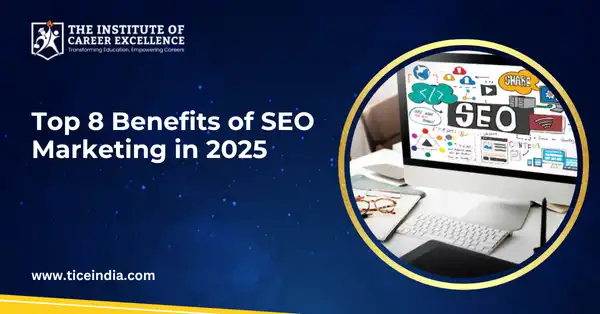
Posted On: August 12, 2025
Top 8 Benefits of SEO Marketing in 2025
Search engine optimization (SEO) has quietly become the backbone of sustainable business growth, transforming from a simple marketing tactic into a comprehensive strategy that drives real results. As someone who has witnessed countless businesses transform through strategic SEO implementation at TICE, I can confidently say that the SEO benefits in 2025 are more significant than ever before.
Whether you're a startup looking to establish your online presence or an established business aiming to expand your digital footprint, SEO offers unparalleled advantages: wider customer reach, increased revenue, enhanced brand awareness, quality organic traffic, and cost-effective lead generation. Unlike traditional marketing methods that drain budgets quickly, SEO serves as a budget-friendly digital marketing technique that delivers long-term results.
Having trained hundreds of professionals in our digital marketing course in Kolkata, I've observed firsthand how businesses leverage SEO to build meaningful connections with their target audience. The beauty of SEO lies in its ability to help content marketers develop engaging, valuable content that not only reaches the right audience but also addresses their specific queries and pain points.
Let me walk you through the eight most impactful SEO benefits that businesses can harness with the right strategy and implementation in 2025.
What Is SEO, and Why Does It Matter?
Search engine optimization (SEO) is the practice of optimizing your website, content, structure, and online presence to drive quality organic traffic and improve search engine rankings. It's essentially about making your digital assets more discoverable and valuable to both search engines and users.
SEO encompasses various techniques, including on-page SEO (optimizing individual web pages), off-page SEO (building authority through external signals), keyword research, competitor analysis, and link building. The ultimate goal is simple: make your website more appealing and accessible to search engines and users alike.
Here's how SEO works in practice: When users search for information on Google, the search engine crawlers analyze millions of web pages to find the most relevant and valuable content. Google's algorithm considers over 200 ranking factors to determine which pages deserve top positions. Your job is to understand these patterns and align your content strategy accordingly.
Top 8 SEO Benefits for 2025
1. Drives Quality Traffic to Your Website
Google processes approximately 8.5 billion searches daily, making it the world's largest information hub. According to recent data from BrightEdge, 68% of online experiences begin with a search engine, and the first organic result on Google receives 31.7% of all clicks.
What makes this traffic so valuable? Unlike paid advertising that stops the moment you pause your budget, organic traffic continues flowing 24/7.
From my experience training digital marketing professionals, I've seen businesses transform their revenue streams by focusing on quality organic traffic. The key lies in understanding user intent and creating content that directly addresses their needs at different stages of the buyer's journey.
2. Increases Brand Awareness and Recognition
Brand visibility extends far beyond direct clicks. Even when users don't click on your website link, seeing your brand consistently appear in top search results builds subconscious trust and recognition. This phenomenon, known as the "mere exposure effect," is particularly powerful in B2B marketing.
For businesses starting their SEO journey, I always recommend targeting long-tail keywords initially. Instead of competing for highly competitive terms like "digital marketing," focus on specific phrases like "digital marketing institute in Kolkata" or "advanced SEO training for professionals." These targeted keywords may generate lower search volumes initially, but they offer higher conversion rates and easier ranking opportunities.
A study has revealed that long-tail keywords account for 70% of all search traffic, yet most businesses overlook this goldmine. By gradually building authority through these specific terms, you create a foundation for competing with larger brands.
3. Builds Unshakeable Brand Credibility
Trust is the currency of digital marketing, and search engine rankings serve as digital endorsements. Research shows that 81% of consumers need to trust a brand before making a purchase decision. When your website consistently appears in top search results, it signals to users that search engines consider your content authoritative and trustworthy.
Google's E-E-A-T guidelines (Experience, Expertise, Authoritativeness, Trustworthiness) have become more critical than ever. The algorithm evaluates your content based on author credentials, content quality, external citations, and user engagement metrics. This is why featuring expert authors and including detailed author bios has become essential for SEO success.
Building credibility takes time and consistency. Focus on creating comprehensive, well-researched content, encourage customer reviews, and ensure your Google My Business profile is optimized for local searches.
4. Supports Local SEO and Community Engagement
Local SEO has become increasingly important, especially post-pandemic. Reports that 46% of all searches have local intent, and 80% of local mobile searches lead to conversions within 24 hours. For businesses with physical locations, this represents massive revenue potential.
The key to local SEO success lies in consistent NAP (Name, Address, Phone) information across all platforms, encouraging customer reviews, and creating location-specific content. Voice search optimization has also become crucial, as 50% of adults use voice search daily, according to Google.
Implementation steps include:
- Setting up and optimizing Google My Business profile
- Requesting reviews from satisfied customers
- Creating location-specific landing pages
- Building citations in local directories
- Optimizing for "near me" searches
5. Enhances User Experience and Engagement
Google's Core Web Vitals update has made user experience a direct ranking factor. The search engine now considers page loading speed, mobile responsiveness, visual stability, and overall user satisfaction when determining rankings.
This shift toward user-centric SEO has created a win-win situation: optimizing for search engines now directly improves user experience. Research by Google shows that 53% of mobile users abandon sites that take longer than 3 seconds to load, making page speed optimization crucial for both SEO and conversions.
Key user experience factors include:
- Mobile-first design and responsiveness
- Fast loading times (under 3 seconds)
- Intuitive navigation structure
- High-quality, scannable content
- Clear calls to action
6. Amplifies PPC Campaign Success
While SEO and PPC are often viewed as separate strategies, they work synergistically to maximize digital marketing ROI. WordStream research indicates that brands appearing in both paid and organic results receive 25% more clicks than those appearing in only one section.
SEO data provides valuable insights for PPC campaigns. Keywords that perform well organically often translate to successful paid campaigns, while PPC data can reveal high-converting terms worth targeting through SEO efforts. The cost per acquisition through SEO is typically 50% lower than PPC, according to Search Engine Journal, making it ideal for long-term growth strategies.
7. Covers the Entire Marketing Funnel
Modern SEO has evolved beyond simple keyword targeting to comprehensive content marketing. By creating diverse content types—blog posts, infographics, videos, case studies, and interactive tools—you can engage users throughout their entire buyer's journey.
A study shows that content marketing generates 54% more leads than traditional marketing methods. SEO amplifies this effect by ensuring your content reaches the right audience at the optimal time.
Different content types serve different funnel stages:
- Top-of-funnel: Educational blog posts, industry guides
- Middle-of-funnel: Comparison articles, case studies
- Bottom-of-funnel: Product pages, testimonials, pricing information
8. Delivers Cost-Effective Marketing Results
Perhaps the most compelling SEO benefit is its exceptional return on investment. BrightEdge reports that SEO drives more traffic than organic social media while costing significantly less than paid advertising channels.
The initial investment in SEO—hiring experts, purchasing tools, and creating content—pays dividends for years. Unlike paid advertising that requires continuous budget allocation, well-executed SEO campaigns continue generating results long after the initial investment.
For businesses in competitive markets, establishing early SEO foundations becomes crucial. The knowledge gained from pursuing an SEO career path or understanding SEO salary trends in India can help professionals make informed decisions about investing in this channel.
Frequently Asked Questions
What is SEO, and what are its benefits?
SEO involves strategically enhancing your website's content and structure to improve its visibility on search engines, which naturally attracts more qualified visitors, strengthens your brand presence, builds trust with your audience, and creates a better overall experience for users.
What does SEO mean, and why is it important?
SEO stands for Search Engine Optimization. It's important because it helps businesses connect with customers actively searching for their products or services, resulting in higher-quality leads and better conversion rates.
What are the 4 types of SEO?
The four main types are on-page SEO (optimizing individual pages), off-page SEO (building external authority), technical SEO (improving site infrastructure), and local SEO (targeting location-based searches).
What are the benefits and challenges of SEO?
Benefits include cost-effectiveness, long-term results, and high-quality traffic. Challenges include the time investment required, algorithm changes, and increasing competition.
Final Thoughts: Your SEO Journey Starts Now
The digital landscape of 2025 rewards businesses that prioritize long-term, sustainable growth over quick fixes. SEO benefits extend far beyond improved rankings—they encompass enhanced user experience, stronger brand credibility, and measurable business growth.
From my experience leading a premier digital marketing institute in Kolkata and training hundreds of professionals, I've learned that SEO success requires patience, consistency, and continuous learning. Whether you choose to develop in-house expertise or partner with professionals, understanding core SEO principles remains essential for business leaders.
The businesses that thrive in 2025 will be those that embrace SEO as a fundamental business strategy rather than a marketing afterthought. Start building your SEO foundation today, focus on creating genuine value for your audience, and watch as your digital presence transforms into a powerful growth engine.
Remember, every successful SEO journey begins with a single optimized page. The question isn't whether you can afford to invest in SEO—it's whether you can afford not to.
Tags
Latest Posts
-

10 Highest-Paid Digital Marketing Skills in Demand in 2026
-
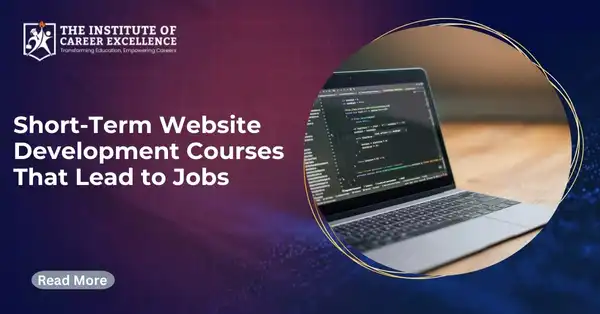
Short-Term Website Development Courses That Lead to Jobs
-
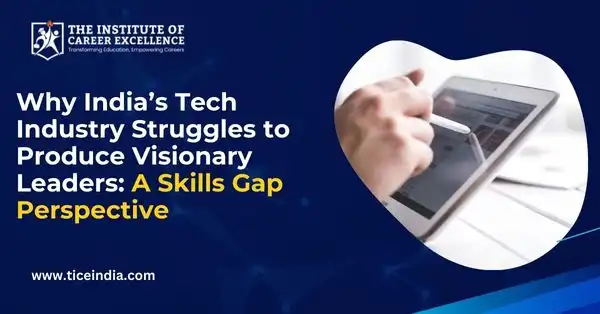
Why India’s Tech Industry Struggles to Produce Visionary Leaders: A Skills Gap Perspective
-

Best Certification Courses After 12th for a Career in IT
-
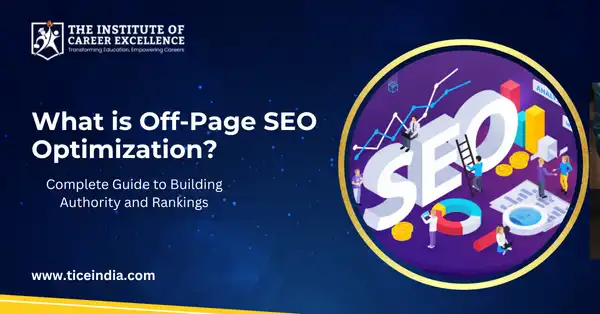
What is Off-Page SEO Optimization? Complete Guide to Building Authority and Rankings
Similar Posts
-

10 Highest-Paid Digital Marketing Skills in Demand in 2026
-

Short-Term Website Development Courses That Lead to Jobs
-

Why India’s Tech Industry Struggles to Produce Visionary Leaders: A Skills Gap Perspective
-

What is Off-Page SEO Optimization? Complete Guide to Building Authority and Rankings
-
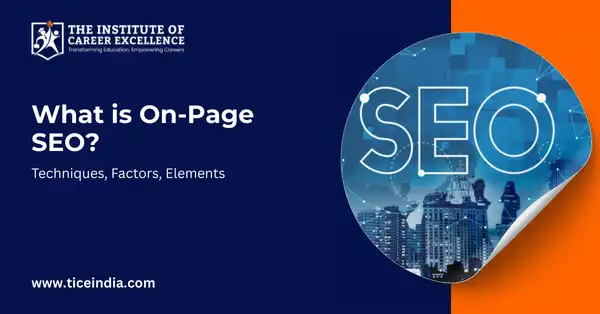
What is On-Page SEO? Techniques, Factors, Elements



